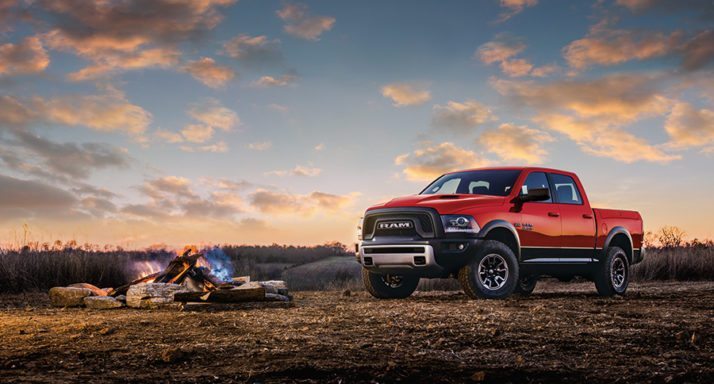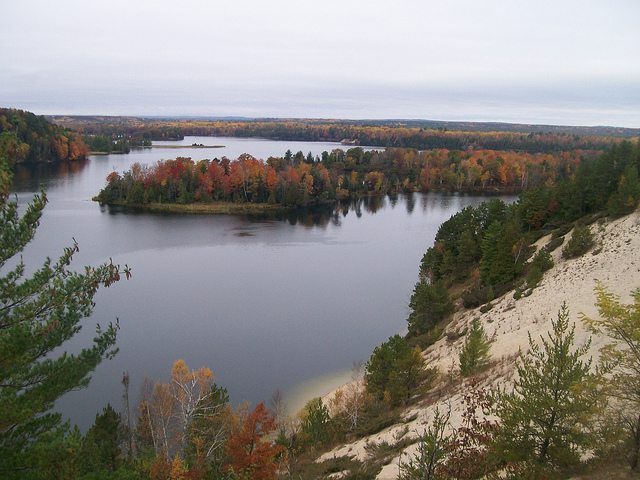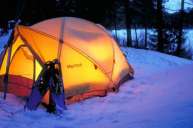Going somewhere in your truck this summer? Maybe even doing some truck camping? Good for you; you're using your vehicle to the fullest.
Going to brand-new places, however, can introduce some conundrums when it comes to prep work. How do you know what you'll need, and what to take advantage of? Have no fear, truck campers. Your answers are here.
We've divvied up some tips depending on what part of the country you'll be truck camping in, so hopefully, you'll be ready for anything when you embark on your trip.
Midwest
1. Count on the cold
If it's early spring or really late in the camping season, you're going to want to fill up on necessities that will keep you warm in subfreezing temperatures. Make sure your truck tent is sturdy and somewhat insulated, and be sure to bring the warmest sleeping bags and clothing you've got. You never know when you can get hit by one of those April snowstorms.
2. Pack for some fishing
Folks who know Michigan, Minnesota, or Wisconsin can attest to the fantastic fishing opportunities in the region, and you can't really travel more than an hour or so without finding another body of water with catchable species in it.
Worried about the space your fishing gear will take up? Worry not if you're driving a Ram truck, with the Class-exclusive RamBox® Cargo Management System. This secure, lockable hold features Cargo box lighting, a bed extender and divider, and bed rails with four adjustable tie-down cleats.
East Coast
3. Be flexible
One of the great things about the eastern seaboard is the fact that a ton of great camping areas are all within reasonable driving distance between each other. If you're able, determine a couple stops on your truck camping trip, and keep things interesting with changes of scenery.
Southwest Desert
4. Bring warm clothes, hats, and gloves
People who don't normally travel to places like Arizona, New Mexico, or Nevada inevitably fail to realize how cold it can get at night, even during the early or late summer season.
If you're truck camping in the desert, be prepared for colder temps than you might think. Always be prepared with extra layers for all parts of your body so you aren't surprised by the cold.
5. Practice diligent fire safety

Not a dry season goes by without a serious forest fire, and campers are the first to get the finger pointed at them. Don't commit to starting a fire unless you've taken all the necessary precautions, have experience, and know how you're going to put the fire out, completely, when needed.
Rockies
6. Make sure your truck can take it
Truck camping in the mountains is tough to beat, isn't it? Well, it won't be so awesome if you drive the wrong vehicle through some of the more treacherous mountain roads. Be assured of your truck's capabilities, like handling and brakes, and make sure things are up to date on the maintenance schedule. Good tires would be worth the investment before a trip to the Rockies, too.
All of these are covered with a Ram truck, and you can add in up to 10,620 pounds max towing capabilities. You won't have to worry if you're driving one of America's Longest-Lasting Pickups*.
7. Protect your stuff, and yourself
Of all the places you can go camping in the continental U.S., the Rocky Mountain range is where you're most likely to encounter a bear. That's both good and bad; good if you're keeping your distance and casually observing, but bad if your meeting with a bear is a result of your food or garbage attracting them.
Take the necessary precautions to either pack and lock away any fragrant supplies that may bring bears calling, or suspend them above a campsite using the tried and true hanging method. There's no such thing as taking too many steps to keep yourself safe from bears and other dangerous creatures.
Deep South
8. Book ahead of time
It's no mystery that the best camping sites are going to get scooped up quickly no matter where you're camping, but when you think about it, there are not only in-state campers who set their sites on the southern states, but northerners, too. Who wouldn't want to escape to the warmth of the south after a long winter?
That being said, you're going to want to plan ahead of time to research, find, and book a camping site sooner rather than later.
9. Pack the bug deterrents
Mosquitoes in the south are known carriers of several diseases, including Zika virus, Chikungunya virus, and West Nile virus. If you come from a place that doesn't have a mosquito problem, you don't want to be unprepared if you're headed for the swamps of Georgia or Louisiana.
Above all, make plans to have a good time. Traveling across this great country and enjoying places different from our hometowns is what it's all about.
No matter where your destination is, you're enjoying the outdoors, and that's what's most important.






